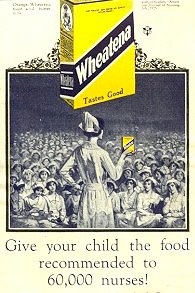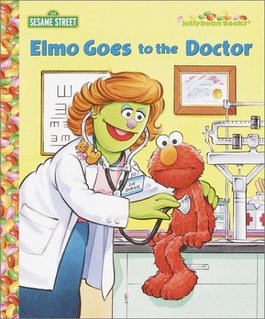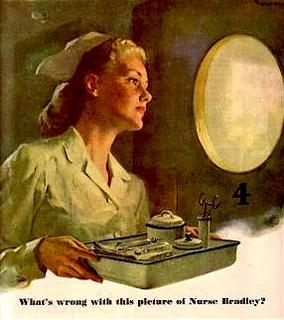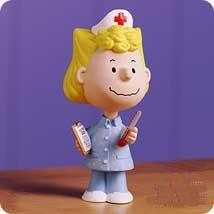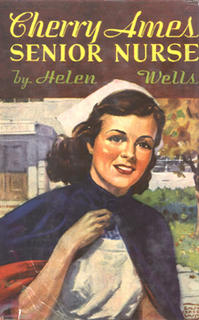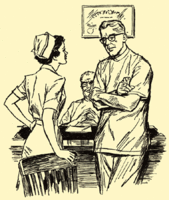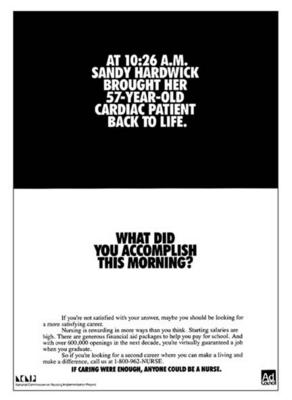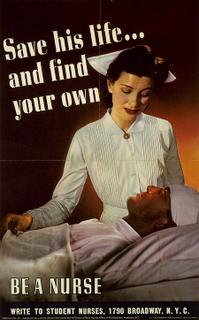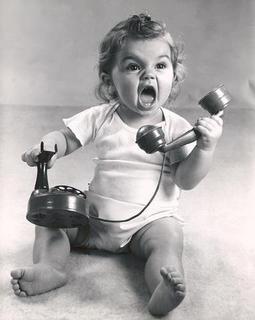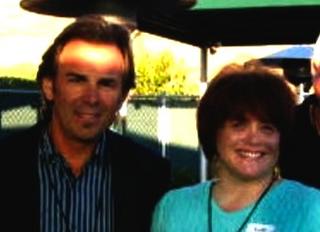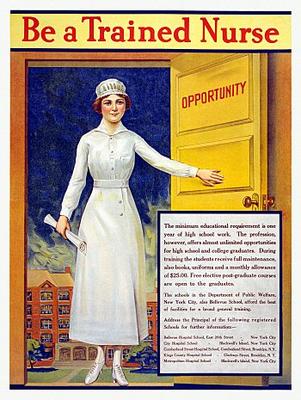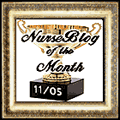Ask the Great Pumpkin....
 Lucy thinks this is bad? She should try working in an ER. I'll take dog germs any day. In recognition of Halloween, I have compiled a list of questions I would ask The Great Pumpkin, who, as we all know, rises out of the pumpkin patch once a year to answer rhetorical questions such as:
Lucy thinks this is bad? She should try working in an ER. I'll take dog germs any day. In recognition of Halloween, I have compiled a list of questions I would ask The Great Pumpkin, who, as we all know, rises out of the pumpkin patch once a year to answer rhetorical questions such as:
Did Dixie McCall ever leave the nurses' station on "Emergency"?
Why is it easier to stay up until 0700 than to get up at 0700?
Why is it that when you have a child requiring transport to a pediatric facility, the patient is well enough to be throwing a football to his nurse when the transport team arrives?
Why would my husband even remotely suggest that I want to watch "Trauma In the ER" on my days off?
Why is it when a law enforcement officer seeks medical attention in the ER, the entire force on duty at that time comes in to say hi? Ditto with the fire guys?
How can they say we don't have universal access to health care when anyone at anytime can walk into any ER for any reason and by law cannot be turned away because of lack of funds?
Why are they always defibrillating patients in asystole on TV?
Have you ever noticed that if the wait is too long, patients will "self-triage" themselves out of the emergency department?
What is it about "No Cell Phones" that is so hard to comprehend?
Why is it that a person will stand in line for three hours for a flu shot and then gripe if their entire ER visit takes the same amount of time?
Ever notice how a warm blanket will soothe the cranky patient?
Why would county dispatch send four ambulances to one ER within 15 minutes when none of the other hospitals are on ambulance diversion? Ever feel like Sally Brown when you are trying to work and it seems like the entire world is trick-or-treating?
Ever feel like Sally Brown when you are trying to work and it seems like the entire world is trick-or-treating?
How did the nurse on "ER" auscultate a sys-
tolic BP of 40 without a sphygmomano-
meter or a stethoscope?
Why would a facility feed into the "instant gratification" culture by placing this ad in the local paper: "It takes longer to walk to your mailbox than it does to be seen in our ER"?
And finally, how much candy will be on the break table at work tomorrow?
Happy Halloween! Here's to no tricks and a ton of treats!
